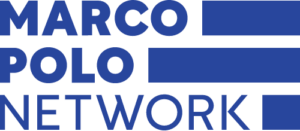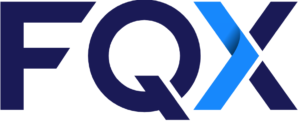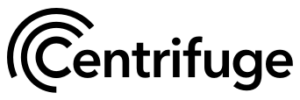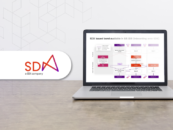
8 Fast-Growing Supply Chain Fintech Companies from Europe
by Fintechnews Switzerland December 16, 2022Cutting edge technologies including artificial intelligence (AI), analytics and distributed ledger technology (DLT) are changing the way companies and their suppliers do business. These technologies are revolutionizing the supply chain industry by introducing digital solutions that improve processes, enhance efficiencies and increase transparency.
In Europe, a plethora of tech startups have emerged over the past couple of years to resolve the financing difficulties of micro, small and medium-sized enterprises (MSMEs), help achieve digitalization of the industry, and support the growth of the real economy.
To get a sense of the region’s fast evolving supply chain fintech industry, we’ve made a selection of Europe’s most innovative and fastest-growing startups disrupting the space. These eight companies are leveraging technology to bring transparency to global trade, provide short-term financing solutions and facilitate business-to-business (B2B) commerce. They’ve made notable strides over the past year and are poised for further growth moving forward.
Marco Polo

Founded in 2017 and based in London, Marco Polo is a trade finance initiative led by TradeIX and R3.
The platform, which makes use of distributed ledger technology (DLT), aims to improve the trade ecosystem and its participants through providing secure, distributed data storage and bookkeeping, automated contract enforcement, identity management, asset verification and tracking. It is designed to be a truly open network that allows interoperability for applications and legacy systems at banks and corporates involved in international trade transactions.
Companies part of the Marco Polo network include Bank of America, BNY Mellon, BNP Paribas, Accenture, Google, IBM and Microsoft. According to Dealroom data, Marco Polo has secured US$16 million in funding so far.
Komgo
Founded in 2018 and headquartered in Geneva, Komgo is a blockchain software development and technology services company solving problems for the trade finance industry. The company builds digital solutions designed to transform internal workflows and the relationships between importers, exporters, banks, and all industry stakeholders.
Komgo is owned by the industry’s leading banks and corporates, including ABN-AMRO, Credit Agricole, Citi, Gunvor, ING and Societe Generale. It has offices in Seoul, Singapore, Geneva, London, New York, and Houston.
Earlier this month, Komgo acquired GlobalTrade Corporation (GTC), a Canadian multi-bank trade finance solutions provider. Jointly Komgo and GTC provide trade finance digitalization solutions to over 120 multinational clients and their 11,000+ subsidiaries.
According to Dealroom data, Komgo has secured US$29 million in funding so far.
FQX

Founded in 2019 and headquartered in Zurich, FQX is a blockchain startup. FQX’s primary offering is the eNote, an unconditional promise to pay a specific sum to another party at a specific future date.
The eNote is based on blockchain technology, can be modularly structured to fit any financing purpose, and can be easily transferred to any third party. Businesses can sell their eNotes in a practice similar to invoice factoring to get cash before the settlement dates as means to improve cash flow. eNotes can also be used by companies to obtain short-term financing from banks or other corporations.
eNotes are issued and traded in real-time on a blockchain-based infrastructure, enabling improved liquidity and risk protection for both trading partners.
FQX inked a deal with Switzerland’s SIX Digital Exchange (SDX) in February 2022 to use the startup’s blockchain-based short-term debt instruments on SDX. FQX secured US$4.7 million in a seed funding led by SIX Fintech Ventures, the non-strategic corporate venture arm of SIX, and unicorn startup founder Carsten Thoma.
Previse

Founded in 2016 and headquartered in London, Previse is a global financial services and technology company specializing in business-to-business (B2B) commerce. The company has built the infrastructure to connect the millions of suppliers on existing B2B networks with billions of dollars of finance in ways that are otherwise not possible. The company’s core capability is to process corporate and small and medium-sized enterprise (SME) trading data globally and use artificial intelligence (AI) to predict future revenues and price the risk accurately.
Previse claims it carries out over US$24 trillion of trade each year between 20 million SMEs and 5,000 corporate buyers globally.
In May, Previse closed the first phase of its Series B financing, securing US$18 million to expand the availability of its data-driven working capital finance solutions designed for SMEs.
EcoVadis

Founded in 2017 and headquartered in Paris, EcoVadis is a provider of business sustainability ratings, intelligence and collaborative performance improvement tools for global supply chains.
EcoVadis’ easy-to-use and actionable sustainability scorecards and carbon action tools provide detailed insights into environmental, social and ethical risks across 200+ purchasing categories and 175+ countries, enabling businesses of all sizes to monitor and improve the sustainability performance of their business and trading partners.
Industry leaders such as Amazon, Johnson & Johnson, L’Oréal, Unilever, LVMH, Salesforce, Bridgestone, BASF and JPMorgan are among the 100,000 businesses that collaborate with EcoVadis.
EcoVadis is one of the most well-funded climate fintech startups in Europe, having secured a total of US$725 million in funding. In June, it closed a US$500 million Series C, which was extended in November with an undisclosed secondary transaction. The startup said it would use the proceeds to continue its investments in internal and acquired innovation, expand its global scale-up, and deepen the user engagement and impact of its solutions. EcoVadis is part of the unicorn club.
Traxpay

Founded in 2009 and headquartered in Frankfurt, Traxpay is a fast-growing supply chain finance platform that operates globally from Europe with a multi-bank approach. Traxpay aims to become the “360° supply chain finance platform of choice” for buyers, suppliers and banks, enabling companies to manage their working capital in a simple, secure and sustainable way.
Traxpay offers all stakeholders a set of tools for generating and securing liquidity along the entire value chain. Established financial institutions including Deutsche Bank, DZ Bank, Nord/LB, LBBW and KfW IPEXBank utilize Traxpay’s financing solution and maintain strategic partnerships with the company.
Traxpay has secured a total of US$18 million in funding so far, according to Dealroom data. Backers include Deutsche Bank, Commerzbank, and Earlybird Venture Capital.
Finverity
Founded in 2017 and headquartered in London, Finverity operates an award-winning supply chain finance technology platform that caters to the entire ecosystem of trade finance participants.
Finverity’s platform is made available via three routes: a digital marketplace that directly matches bank and non-bank funders with pre-qualified mid-market companies seeking supply chain and receivables finance; a highly customizable, white-label software for banks and non-bank funders looking to increase their supply chain and receivables finance operations; and a servicing offering enabling funders to onboard, distribute and manage their own transactions and co-fund new transactions using Finverity’s open platform.
Finverity secured in February 2022 a US$2 milloin Pre-Series A equity funding round, which the company said it would use to expand its sales, operations and technology teams to support its rapid growth. The company is also planning to open three new offices across the Middle East and North Africa (MENA) and Europe.
Centrifuge

Headquartered in Zug and founded in 2017, Centrifuge is an open, decentralized operating system that aims to connect the global financial supply chain. The system allows participants to transact on a global network while maintaining ownership of their data, including their validated company details, their reputation, business relationships, and subsequent transactions.
The decentralized finance (DeFi) lending protocol seeks to make credit more accessible to small businesses by allowing them to borrow money against real-world assets (RWAs), while also providing a stable yield for investors by opening pooled liquidity to the world of traditional finance. Centrifuge’s associated decentralized application (DApp), Tinlake, is a marketplace for tokenized RWAs.
Centrifuge has already financed over US$134 million in RWAs such as financing over US$4.5 million trade receivables of Harbor Trade. In November, the startup closed a US$4 million funding round, bringing its total raised to US$15.8 million, according to Dealroom data.
Featured image credit: Edited from Freepik




